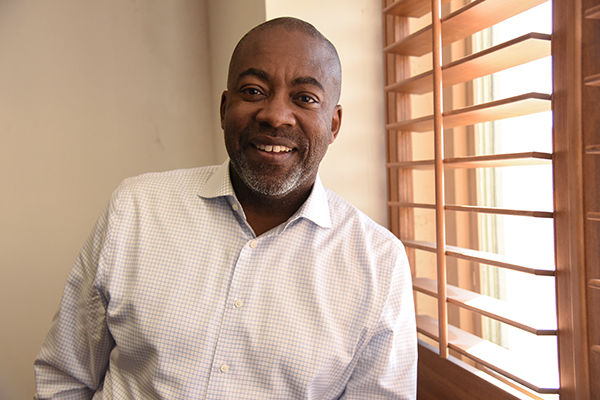As the last day to register to vote in the primary election (Feb. 3) approaches, history professor Leonard Moore has emphasized in his classes the parallels between the 1972 and 2020 elections.
Moore, who serves as UT’s vice president for diversity and community engagement, explored these parallels in his 2018 book “The Defeat of Black Power,” but he said its message is more important because of the upcoming election.
“In 1972, the Black community was at a crossroads,” Moore said. “(Former president Richard) Nixon was in office, and many people saw his election as a backlash to the civil rights movement. We see similar parallels to (former president Barack) Obama being in office and (President Donald) Trump coming in on his heels.”
Moore said the Black community accomplished tangible goals of voting rights and integration in 1968 but did not know where to go from there. He said the community feels the same way now because it does not know what it wants.
“If you put 10 Black people in a room and ask them what the most important issue facing Black America is right now, you would get 10 different answers,” Moore said.
The media views the Black community as one monolith with the same views, Moore said, but numerous factors, including economics, divide the community.
Black leaders held a convention in 1972 to set a national political agenda for Black people, Moore said. He said a similar convention in 2020 would help address these divides.
“In 1972, there wasn’t a clear African American spokesperson,” Moore said. “(Martin Luther King Jr.) died in 1968. And no matter what people thought of him, they respected him as this symbolic head of this movement. Even in 2020, people are looking for the Black spokesperson, for direction.”
Moore said many Black citizens will vote for Joe Biden, a Democratic presidential primary candidate, or for Trump. He said these people strongly value economic impacts.
Zaria El-Fil, a psychology and African and African diaspora studies senior, said the elected primary candidate and president will not matter because voting does not work for the Black community.
“I can confidently say (campaigns) are a matter of who has enough money and who has enough persuasiveness to garner support,” El-Fil said. “Many white candidates go to Black barbershops … or dance to rap music to give us some semblance of connection and support that they don’t plan to carry on in action.”
Business freshman Kamryn Rudison said she plans to vote in the 2020 elections because of Moore’s lectures.
“I don’t think I would have registered,” Rudison said. “I wouldn’t have thought about it, but (Moore) said it’s important, and we need to get more into politics because it affects us.”
Moore said the primary and general elections are important, but so are elections on local levels.
“If you look at inner-city Black America, the municipal court judge has more of an impact on Black life than Donald Trump,” Moore said. “In 1972, there was an interest in Black people running for political office on the local, county and state level that was equally important. And I would tell people to look to the book because Black people need a strategy before we go into the primary elections.”





















